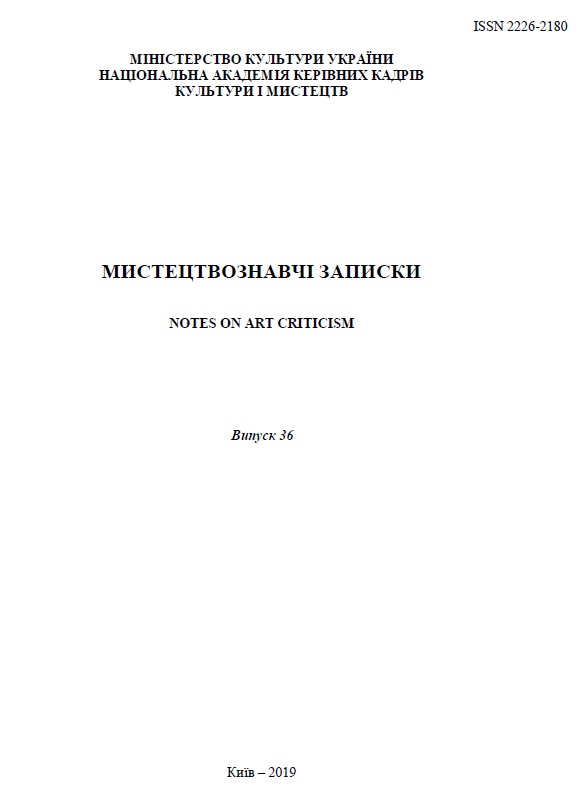НОВІ АСПЕКТИ МУЗИЧНОЇ МОВИ У ТВОРЧОСТІ СЕРГІЯ ПРОКОФ’ЄВА ТА ЇХ ВИКОНАВСЬКА РЕЦЕПЦІЯ (НА ПРИКЛАДІ СОНАТИ ДЛЯ СКРИПКИ ТА ФОРТЕПІАНО ОР. 80, №1)
NEW ASPECTS OF THE MUSICAL LANGUAGE IN THE WORKS OF SERGEI PROKOFIEV AND THEIR PERFORMING RECEPTION. (SONATA FOR VIOLIN AND PIANO O. 80, №1 CASE STUDY)
Author(s): Natalia BazinaSubject(s): Music
Published by: Національна академія керівних кадрів культури і мистецтв
Keywords: musical language; interpretation; creativity of Sergey Prokofiev; sonata for violin and piano;
Summary/Abstract: The purpose of the article are to isolate, by analysis, the traditional and innovative components of the sonata, to suggest certain ways of performing this work. The methodology combines general scientific and specifically musicological methods. Inductive and comparative methods should be mentioned among the general scientific methods, and the method of musicological and performative analysis of a musical work should be mentioned among the specifically musicological methods. Based on a comparative analysis of the performance versions of S. Prokofiev's sonata for violin op.80, a generalization on the nature of the understanding of the innovations of the musical language by different interpreters is made. The following aspects are considered: updating of harmonic means, enrichment of textural types, the interaction of traditional and new principles of shaping in the sonata genre, performing vision of peculiarities of forming parts of a cycle. The scientific novelty is thу specific interpretation that is considered as a projection of understanding and reproducing the innovations of musical language by the performers. Сonclusions of the study are that linguistic innovations cover different compositional levels of the work and are the basis for rethinking the genre model of the sonata, in particular, its compositional algorithm and method of unfolding dramatic conflict. The distinction between traditional and innovative aspects of musical language is a conditional but perceptually necessary auxiliary tool that creates in the mind of the performer specific basic orientations required in the construction of a convincing performed version of the work.
Journal: Мистецтвознавчі записки
- Issue Year: 2019
- Issue No: 36
- Page Range: 216-221
- Page Count: 6
- Language: Ukrainian

